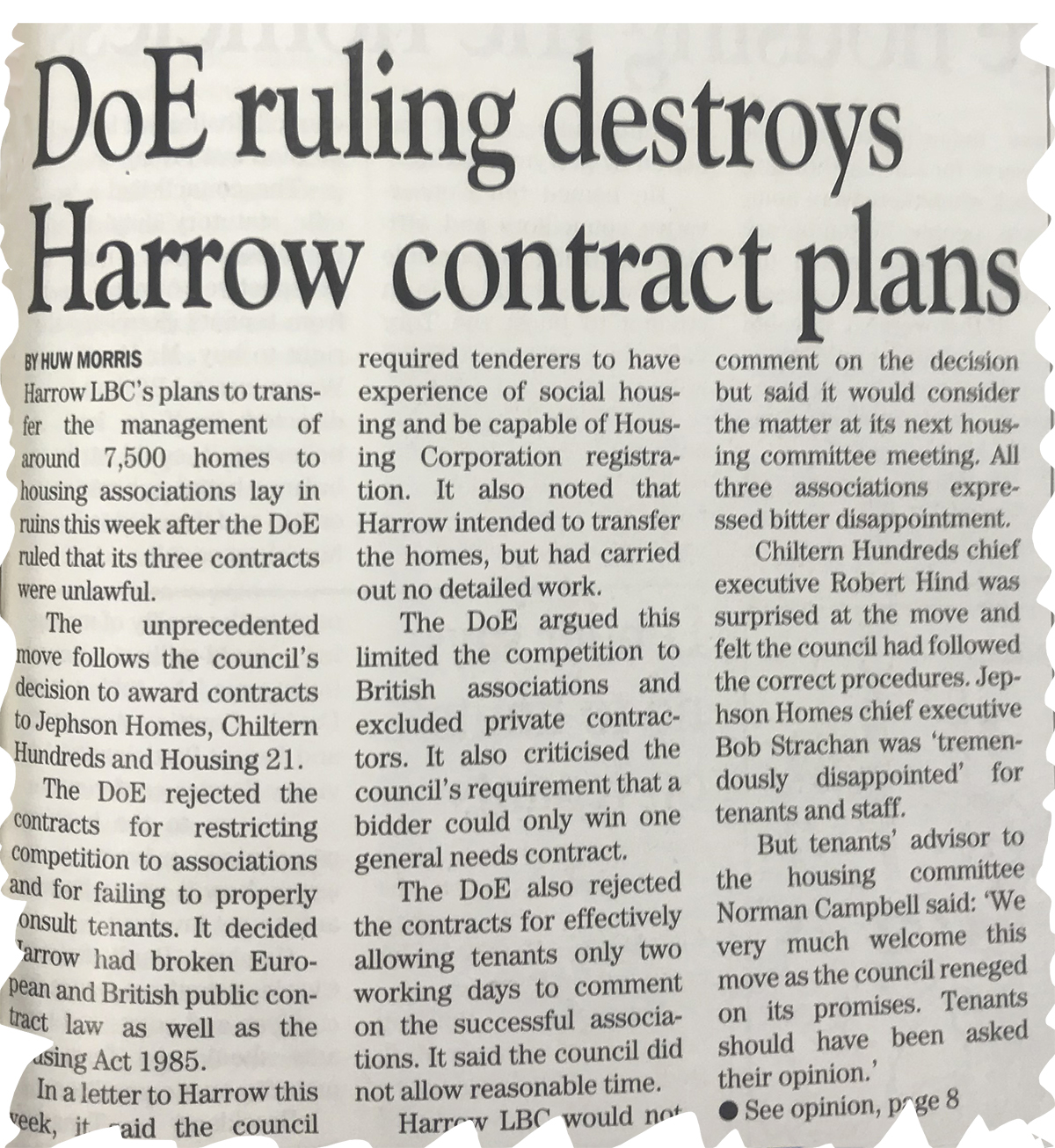You are viewing 1 of your 1 free articles
From the archive – government blocks council’s stock transfer plans
Inside Housing looks back at what was happening in the sector this week five, 15 and 25 years ago
25 years ago
Harrow Council’s stock transfer plans were left in disarray after the government ruled that three contracts relating to the transfer of management responsibilities were unlawful.
The unprecedented move followed the council’s decision to award contracts for the management of around 7,500 homes to Jephson Homes, Chiltern Hundreds and Housing 21.
But the Department of the Environment ruled the contracts restricted competition and found the council had failed to properly consult tenants. It said Harrow had broken European and UK public contract law as well as the Housing Act 1985.
The council would not comment but said it would consider the matter at its next housing committee meeting. All three associations expressed disappointment.
15 years ago
The government agreed that private developers winning housing grant should be bound by similar rules to housing associations, following pressure from the House of Lords.
An amendment to the Housing Bill tabled by cross-bencher Lord Best called for equal protection for tenants of homes built by developers and housing associations. It also called for consistency of regulation.
The amendment was narrowly defeated, but regeneration minister Lord Rooker said he agreed with its thrust. However, he cautioned that its specific wording would limit the power of the Housing Corporation to regulate new providers.
Lord Best had argued that different rules on the recycling of grant put housing associations at a disadvantage.
Lord Rooker responded: “We can’t require the non-RSLs [registered social landlords] to recycle and invest their receipts as we can the RSLs. It will require the Housing Corporation itself to find an alternative mechanism.”
Michael Hill, director at developer Countryside Properties, said potential regulation was “a burden”.
Five years ago
A consortium of social landlords in Scotland was preparing to enter the energy market through a company that would generate and sell electricity to tenants.
Our Power was founded by eight housing associations and a renewable energy company, with a further 27 landlords later signing up.
When Inside Housing revealed the plan in November 2014, the vehicle was already in the latter stages of securing a licence from energy watchdog Ofgem, ahead of a proposed launch in the spring.
Our Power initially proposed to buy energy wholesale and sell it to tenants, creating savings of up to £100 a year per household. It would later progress to generate and sell power from renewable sources.
It ceased trading in January 2019.










